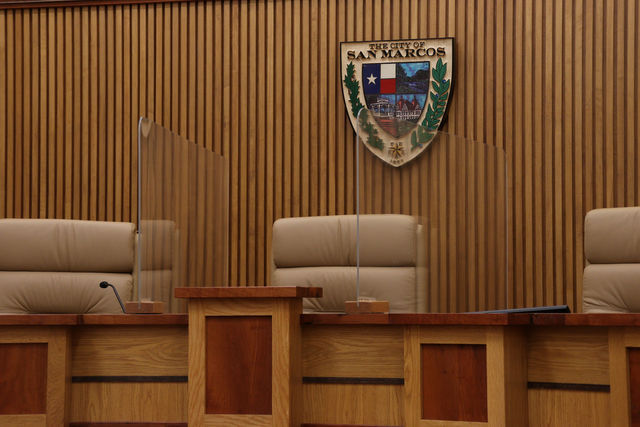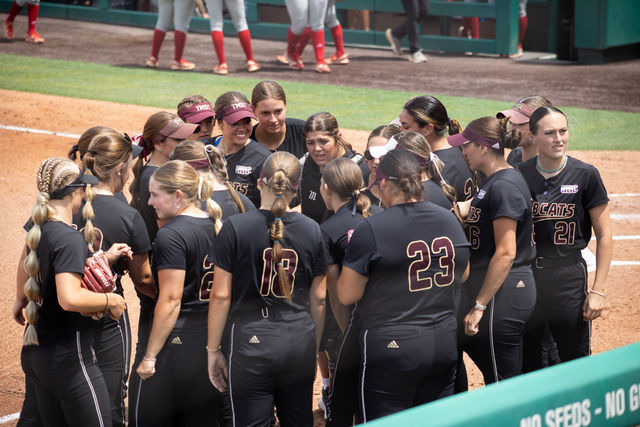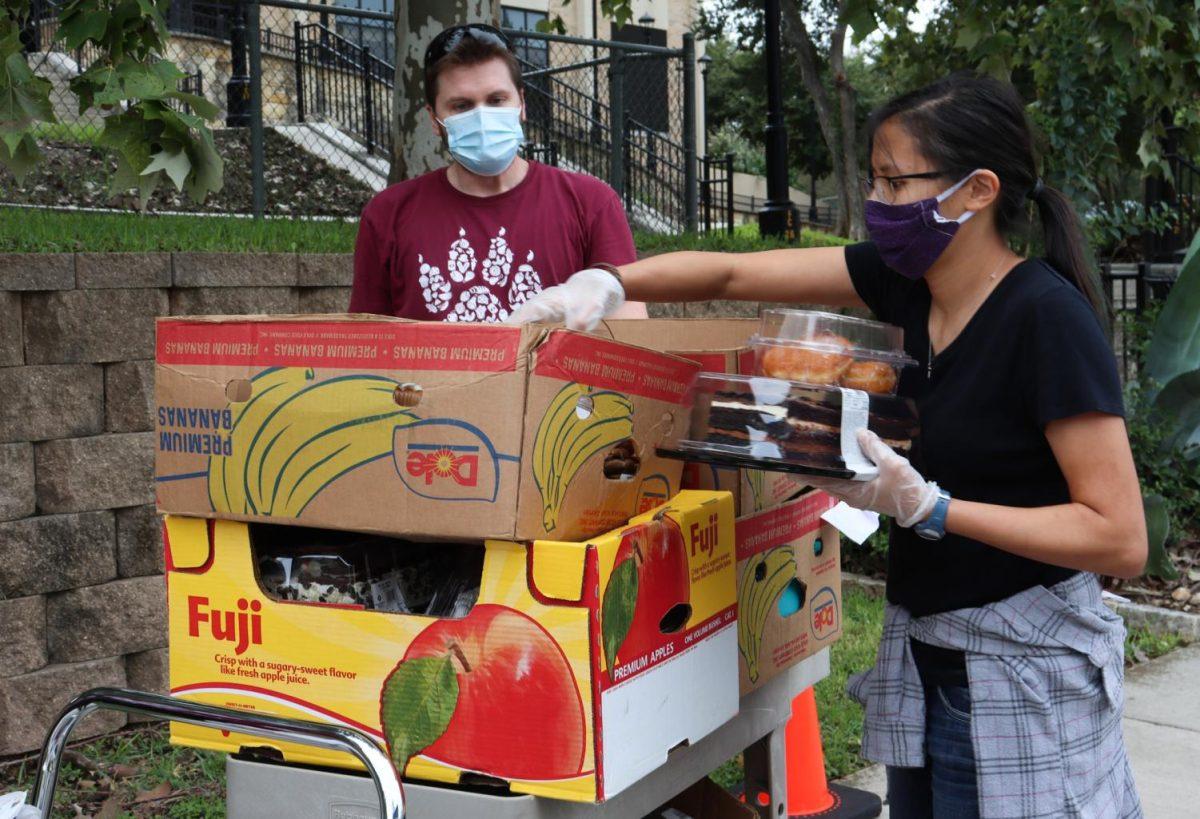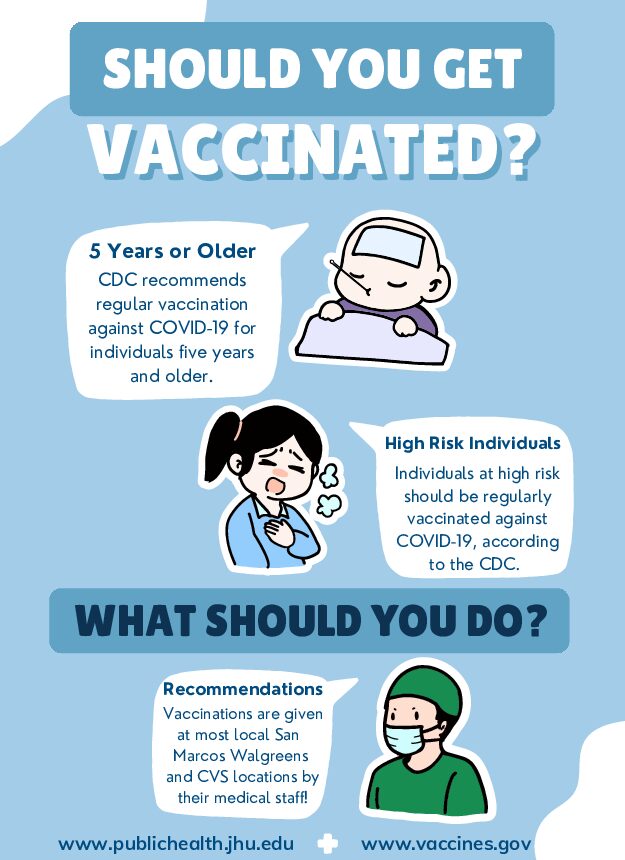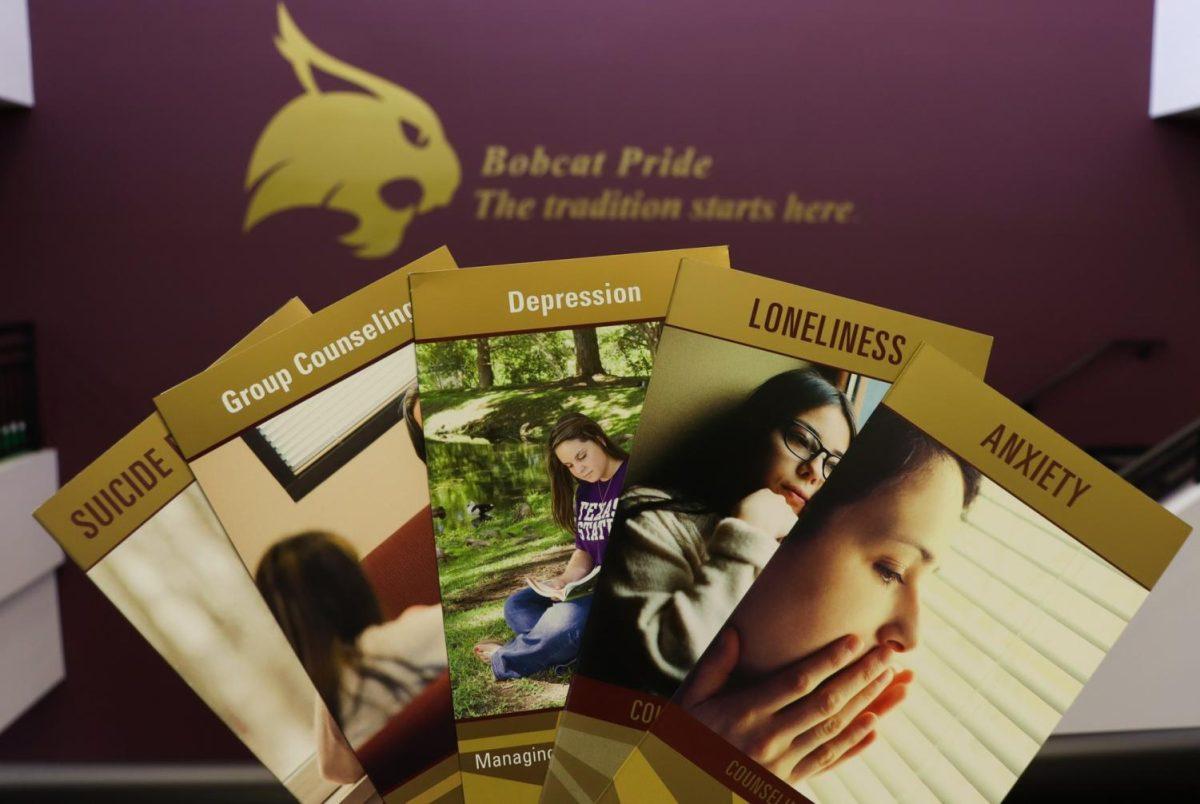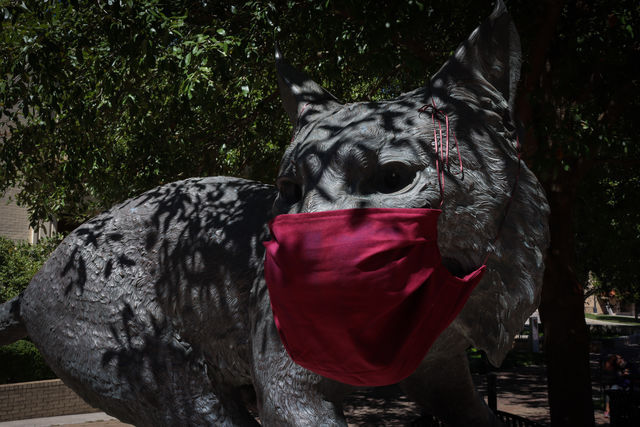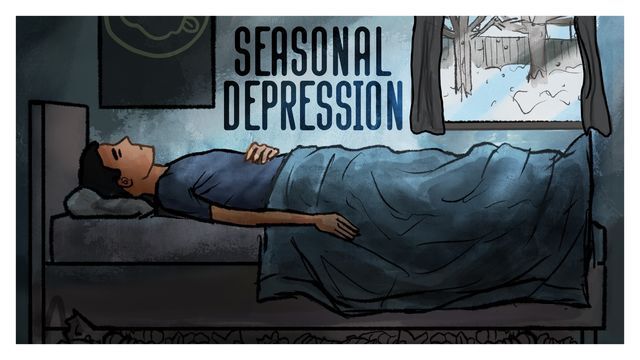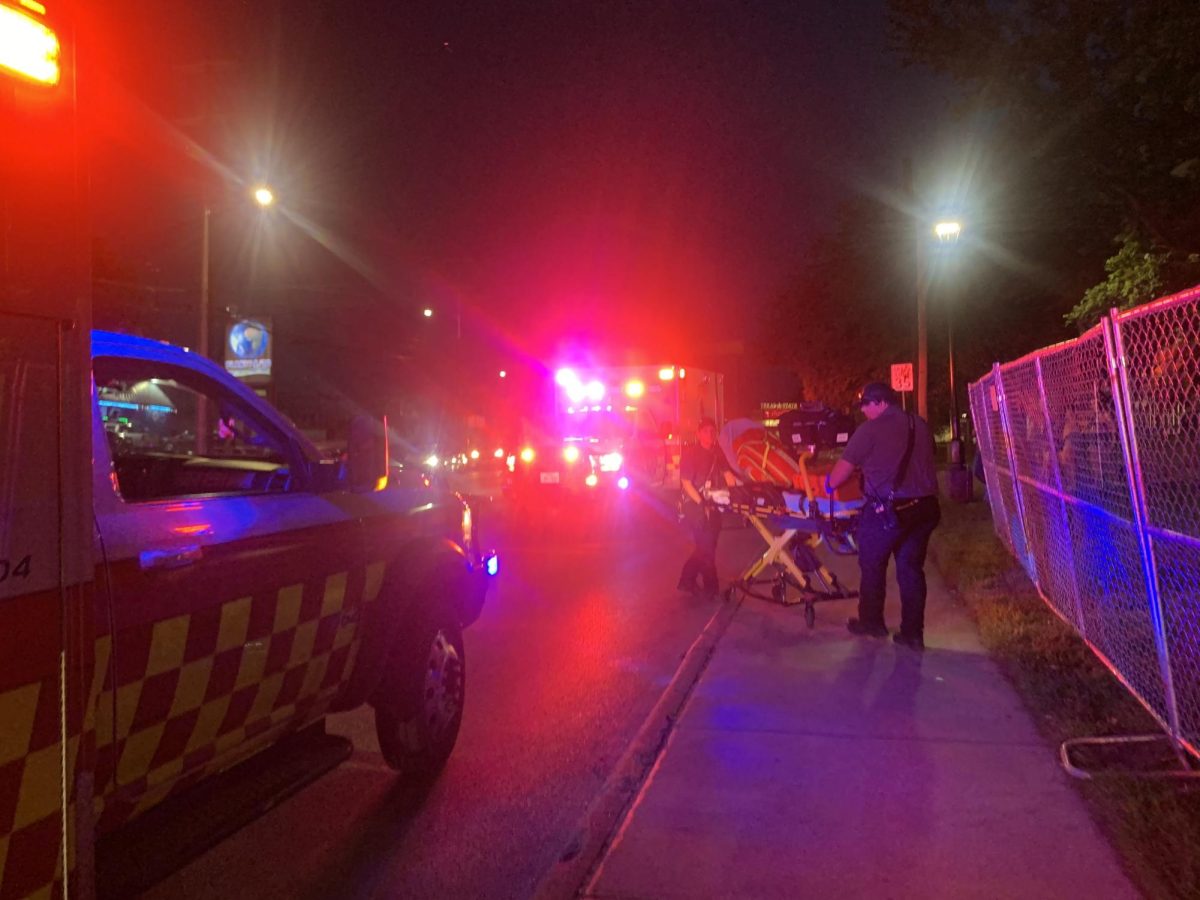An unstable job market is increasing food insecurity among Texas State students and Hays County residents, placing a spotlight on local food banks working to provide essentials for struggling community members.
According to the Hope Center for College, Community and Justice at Temple University, two in three students employed before the pandemic experienced job insecurity, with one-third losing a job due to the pandemic. Those experiencing job insecurity also reported higher basic needs insecurity.
The Pew Research Center estimates 9.2 million young people, aged 16 to 24, are employed in the service industry. The service sector, such as bars, restaurants and retail stores, are some of the hardest hit by COVID-19. College students are especially vulnerable to food insecurity considering they fill a significant portion of service industry positions.
Mallory Best, Hays County Food Bank communications coordinator, says the food bank has served an average of 2,400 individuals a week at its four distribution centers this year. She acknowledges students have a lot to pay for and says people must seek help when they need it.
“If people need food assistance, they’re welcome to come to one of our distribution centers,” Best said. “There’s no judgment; we’re trying to get that stigma pushed aside because if you need help, you need to come and get help.”
Feeding America, a nationwide nonprofit organization running more than 200 food banks in the U.S., predicts an increase in poverty-induced food insecurity in 2020 due to the onset of COVID-19. In 2018, the food insecurity rate in Hays County was around 12.1%. Data collected by Feeding America predicts it will jump to 17.8% by the end of 2020.
Best says the food bank has changed the way it packages and distributes food and has seen an increase in people utilizing its services.
“We have completely had to modify our distribution; we used to have clients come into the building and choose their own food, however, that’s impossible at this point,” Best said. “We pre-box and pre-bag items, and we do a drive-thru distribution four times a week.”
Bobcat Bounty, an on-campus food pantry run by students, is partnered with the Hays County Food Bank. According to Best, the on-campus food bank has also seen an increase in clients utilizing food services.
The student-run food bank, founded by the Food Security Learning Community, a program at the university identifying food insecurity in Texas communities, has served Texas State students since 2018.
Travis Luzania, a graduate assistant for the food bank, says Bobcat Bounty was serving around 100 students a week during the summer and now plans to serve around 150 during the fall semester.
There are eligibility requirements to receive assistance from Bobcat Bounty, but according to Luzania, nobody has ever been turned away.
“We have to have them fill out the eligibility form on our new client request forms,” Luzania said, “Officially, we have eligibility requirements that are based on income by household, but we don’t verify anyone’s eligibility; we don’t require proof of it.”
Luzania started as an intern and says he enjoys working with Bobcat Bounty because it allows him to help people dealing with food insecurity. He experienced it throughout his own life.
“I was around 18 or 19, and I moved out of my parents’ house for the first time. I was barely making enough to pay rent, and most of the time, I was just eating ramen and frozen pizzas on a week to week basis,” Luzania said. “Any money I had left went towards paying tuition costs.”
Ellyn Freiborg, a student in the human nutrition master’s program at Texas State, is a volunteer at Bobcat Bounty. She can remember the very first pantry distribution the program had after Texas State moved classes online in March.
“People still needed food, so we were still running the pantry,” Freiborg said.
She has volunteered for two years and says working with the food pantry is a consistent joy in her life.
“Everyone who volunteers or works for Bobcat Bounty, after a while, once you get to know everybody, you become this really big family, and everyone looks forward to Thursdays, to working Bobcat Bounty,” Freiborg said.
If you need food assistance or would like to volunteer, visit the Hays County Food Bank and Bobcat Bounty websites for more information.

April 17, 2024

April 16, 2024
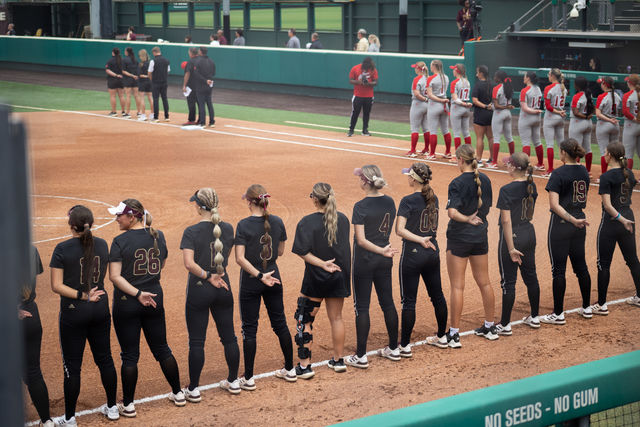
April 16, 2024
Pandemic increases demand on local food banks
September 11, 2020
Archeology graduate student Kaylee Gaumnitz (right) reaches for food to provide for those attending a Bobcat Bounty distribution, Thursday, Sept. 10, 2020, outside of the Family and Consumer Sciences building. Human nutrition graduate student Travis Luzania (left) worked beforehand, wheeling carts of food out to the parking lot.
Donate to The University Star
Your donation will support the student journalists of Texas State University. Your contribution will allow us to purchase equipment and cover our annual website hosting costs.
More to Discover
SECTIONS
SERVICES
CONTACT INFORMATION
universitystar.com
601 University Drive
San Marcos, TX 78666
Phone: 512-245-3487
Email: [email protected]
601 University Drive
San Marcos, TX 78666
Phone: 512-245-3487
Email: [email protected]
© Copyright 2024 The University Star 601 University Drive, San Marcos, TX | Privacy Policy
© Copyright 2024 The University Star 601 University Drive, San Marcos, TX | Privacy Policy

